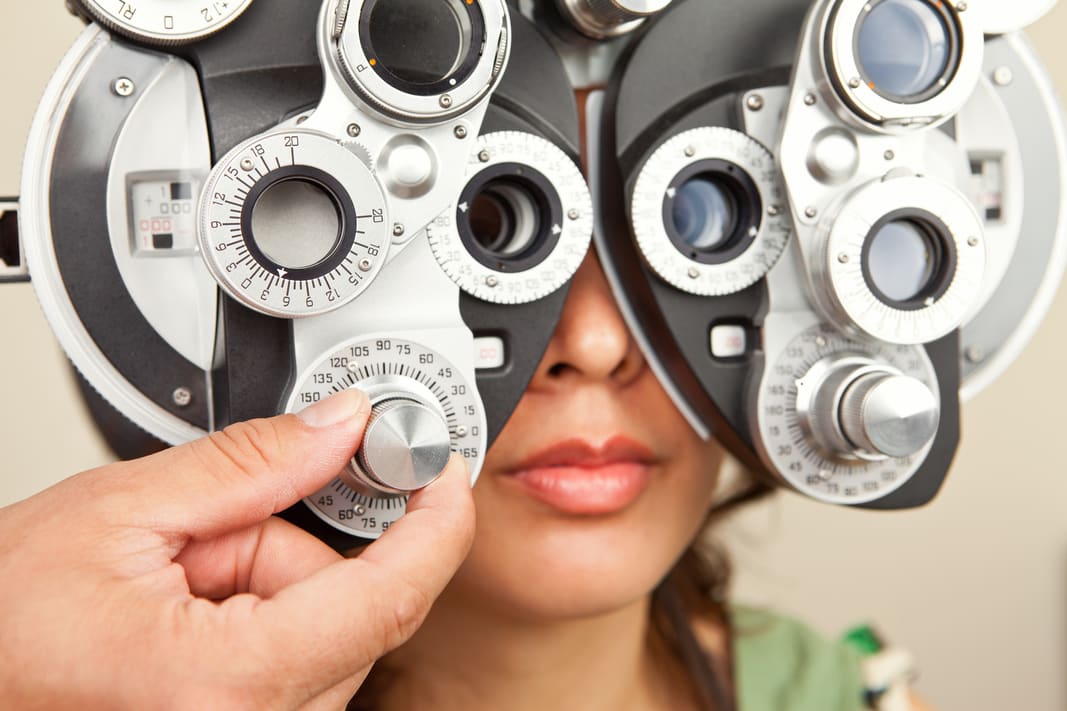Routine & Comprehensive Eye Exams in Southern NH
The Importance of Routine Eye Exams
A Routine Eye Exam consists of an evaluation of the vision and ocular health, including refraction which determines any potential eyeglass prescription. The exam may, or may not, include dilation, which will be determined at the doctor’s discretion. The routine eye exam is performed on a patient with no previously diagnosed ocular disease (cataracts, nevus, glaucoma, lazy eye, etc.) and the patient will have no systemic medical conditions that would require a comprehensive medical eye exam (diabetes, rheumatoid arthritis, medications with ocular side effects, etc.).
Vision plans only apply to routine eye exams.

When a patient with a new or existing medical condition or diagnosis comes into our office for an eye exam, following the Correct Coding Initiatives (CCI) that have been established by the Federal Government, we are obligated, legally and ethically to bill the exam with the correct medical insurance company. All medical co-pays and deductibles, according to your insurance, will apply.
Vision plans do not apply to these types of exams.
We hope this has clarified our appointment and billing practices. If you have a medical diagnosis, please feel free to discuss this condition, or if needed, the billing of this condition with your doctor. The front desk staff can also assist you in understanding how your visit will be billed You may also want to call your insurance company for additional information.
The American Academy of Ophthalmology recommends timely screening for the detection of eye problems in adults without risk factors for eye disease:
Age 65 or older – Frequency of evaluation every year
Age 40-64 – Frequency of evaluation every 1-2 years
Under 40 – Frequency of evaluation every 1-2 years
What to expect at your exam: The examination will consist of a measurement of your vision that will include a check to see if prescription glasses are needed. Your eye pressure will also be measured, as well as your pupils, eye muscles, and side vision. You may be given eye drops that will dilate your pupils. These drops take about 15-20 minutes to work. They may make your eyes light sensitive and difficult to focus, especially up close, for several hours.
Your doctor will then shine several lights into your eyes, using both an eye microscope and indirect ophthalmoscope. These instruments allow for a thorough examination of the various parts that make up both the outside and inside of your eyes.
Additional testing, including specialized imaging, may also be required to further evaluate any abnormal findings on your exam. At the completion of your visit, your doctor will then review your results.
Follow up visits can vary greatly depending on the findings of your exam. A person with a normal exam that only requires glasses may be seen every 1-2 years. Conditions, such as glaucoma, may require follow-up as frequent as every 3 months. Your doctor will discuss the plan for follow-up care at the end of your visit. Contact us today!
